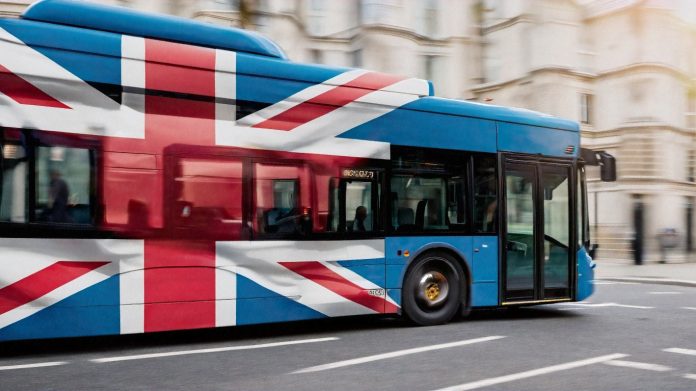The latest data from the Society of Motor Manufacturers and Traders (SMMT) has illustrated that the UK is leading Europe in deploying zero-emission buses.
In the UK, zero-emission buses now represent a quarter of all new registrations – positioning the country as Europe’s largest market for adopting green transportation.
The accelerated uptake of electric buses in the UK marks a pivotal step for the nation in reaching its decarbonisation objectives.
Leading Europe’s zero-emission bus deployment
Overall, the number of new buses, coaches and minibuses registered in the UK increased by 61.7% to 1,826 units in the second quarter of 2024 – with the bus sector experiencing its fifth consecutive quarter of growth.
The adoption of zero-emission vehicles in the UK bus sector is accelerating, with new registrations of the latest green buses rising by 36.3% in the second quarter of 2024, reaching 424 units.
This surge places the UK as the leading zero-emission bus market in Europe, outpacing Italy, Germany, and France in volume.
Government initiatives, such as England’s Zero Emission Bus Regional Area funding and Scotland’s Zero Emission Bus Challenge Fund, have been instrumental in driving this growth.
As a result, nearly a quarter (23.2%) of all new bus purchases in the first half of 2024 were zero-emission vehicles.
Buses are now at the forefront of the UK’s road vehicle decarbonisation efforts. Their transition to zero emissions is more straightforward than that of cars, vans, and trucks, largely due to their depot-based operations and consistent routes.
This positions the bus sector to potentially achieve net zero emissions before any other vehicle category.
However, the uptake of zero-emission buses is uneven across the UK, with smaller and rural bus operators facing significant challenges in funding both the purchase of new vehicles and the necessary infrastructure.
Call for a clear path to a decarbonised bus market
The SMMT has outlined the need for a comprehensive plan in its position paper, “Next Stop, Net Zero: The Route to a Decarbonised UK Bus Market.”
The paper emphasises the importance of establishing a clear timetable to guide all regions, operators, drivers, and passengers towards net zero.
It also calls for long-term, accessible support for bus fleets of all sizes to ensure that the benefits of green mobility—such as improved air quality, reduced noise pollution, and enhanced customer experience—are available to everyone across the UK.
Mike Hawes, SMMT Chief Executive, added: “A boost in uptake of new buses which provide mass mobility across the nation is also a boost for our economy and society, given the vital role these vehicles play – from commuting and staycations to transport for schools, charities and health and social care.
“At the same time, fleets continue to go green in rising numbers and, with suitably ambitious incentives and infrastructure in place, buses and the communities which depend on them could be the UK’s first to reach net zero.”
As the UK continues to lead the charge in zero-emission bus adoption, the path to a fully decarbonised bus fleet is becoming clearer.
By addressing challenges and maintaining momentum, the UK can set a powerful example for other nations, demonstrating that with the right support and strategic planning, a greener, more sustainable future for public transport is within reach.









